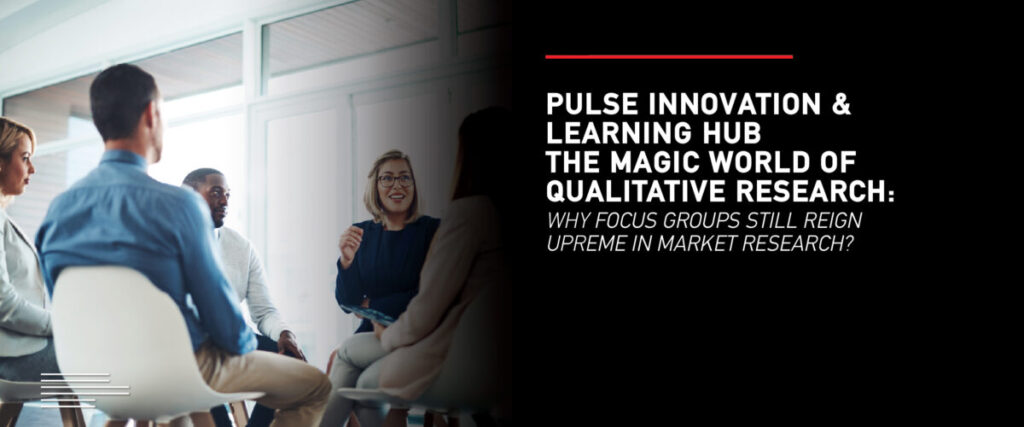by Mika Savva, Head of Qualitative and Business Development
What are focus groups?
Focus groups comprise the most popular methodology used by qualitative researchers, to explore and investigate the complex human perspective, in a context of interactive discussions amongst a small group of participants sharing certain common characteristics (demographic, lifestyle, or other parameters relevant to the study of interest) and representing the target audience group.
Focus group discussions take place in a controlled environment and are usually led by a moderator (market researcher specializing in qualitative research), who guides the discussion using a pre-designed discussion guide which contains the main themes/questions of interest. The discussion guide is designed to cover the market research objectives and is used in a flexible, adaptable manner, depending on the flow of the discussion. The moderator sets the tone of the discussion, the ground rules and ensures that everyone feels safe, respected, and encouraged to share their common or diverse opinion.

Why are focus groups such a popular methodology?
- Provide rich and powerful insights: Focus groups provide rich insights related to a specific topic, generated not only through verbal expressions, but also through emotional cues such as body language, facial expressions, tone of voice e.t.c. of the participants. Emotions reveal level of importance, degree of engagement and meanings that people attach to their experiences, perceptions and behaviours. This methodology can elicit rich, in-depth insights into participants’ deeper perspectives and beliefs.
- Real time benefits: Focus groups offer real-time feedback, allowing researchers to re-adjust the discussion during its course and obtain more insightful and in-depth responses. Also, they allow for clients to observe real-time discussions, which provides them with a direct, immediate feedback on their research questions.
- Group dynamics: Focus group discussions generate richer and more insightful information and ideas generated through group dynamics and interactions among participants, based on the process with which individuals respond to, inspire and influence one another.
- Allows the research to explore deeper using various qualitative research techniques: Moderators may use various research techniques, which can reveal perceptions or feelings in an indirect manner, drilling beyond the surface and exploring deeper into the minds of the participants, than what they can express when asked directly. Such techniques can be: projective, associative, storytelling, structuring, using metaphor and analogies e.t.c.
- Efficiency: Compared to in-depth interviews, in the context of focus groups, the researcher may gather a range of varying insights (feelings, views, experiences) from multiple participants within the same session.
“Focus groups provide rich insights related to a specific topic, generated not only through verbal expressions, but also through emotional cues such as body language, facial expressions, tone of voice e.t.c. of the participants”
For further information please feel free to contact us at business@pulse.com.cy
